Question And Answer
Publications
Articles, publications, books, tools and multimedia features from the U.S. Institute of Peace provide the latest news, analysis, research findings, practitioner guides and reports, all related to the conflict zones and issues that are at the center of the Institute’s work to prevent and reduce violent conflict.
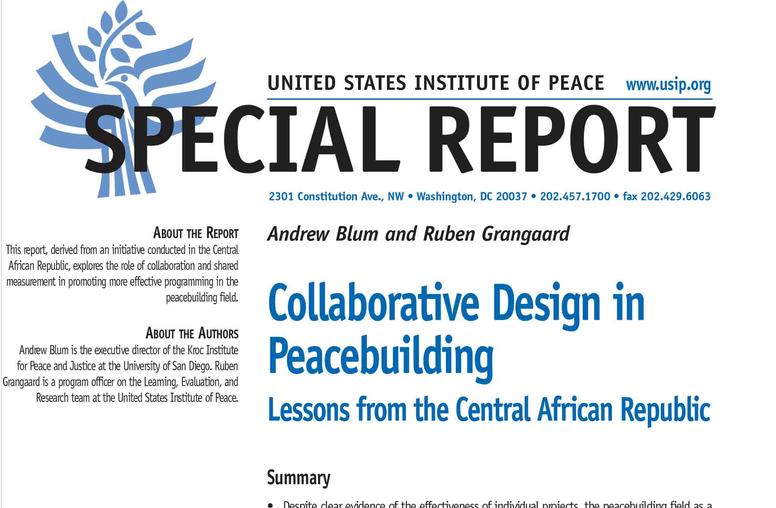
Collaborative Design in Peacebuilding
Despite clear evidence of the effectiveness of individual peacebuilding efforts, the field as a whole often struggles to have a meaningful collective impact on broader conflict dynamics. This report, drawing on a pilot initiative in the Central African Republic—IMPACT-CAR—to develop a shared measurement and reporting system aimed at improving collaboration and shared learning across peacebuilding implementers, reflects on the results, successes, and challenges of the initiative to offer a road map for future initiatives focused on collective impact in the peacebuilding field.
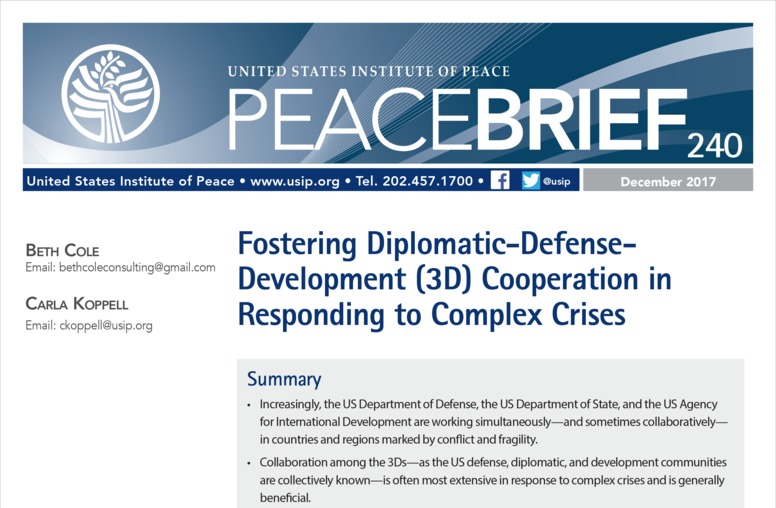
Fostering Diplomatic-Defense-Development (3D) Cooperation in Responding to Complex Crises
The US diplomatic, defense, and development communities (known as the “3Ds”) increasingly find themselves working together to tackle complex crises. This collaboration has already proved its worth, but how can it be made even more effective? A recent USIP research project sought to...
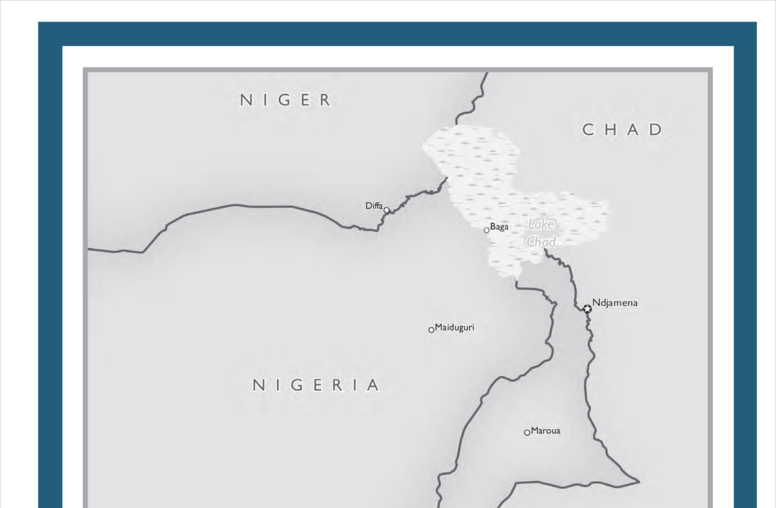
Breaking Boko Haram and Ramping Up Recovery: US-Lake Chad Region 2013-2016
This series of case studies—Burma (2009-2015), Jordan (2011-2016), and the Lake Chad Region (2013-2016)—document efforts and draw lessons from where US government leaders believe deepening crises were staved off through collaborative inter-agency engagement. Part of USIP’s “3D Learning from Complex Crises” project, the cases provide programmatic and operational lessons from complex operating environments. These lessons support systemic integrated approaches to complex crises and will better equip individuals to share objectives when working in inter-agency environments.
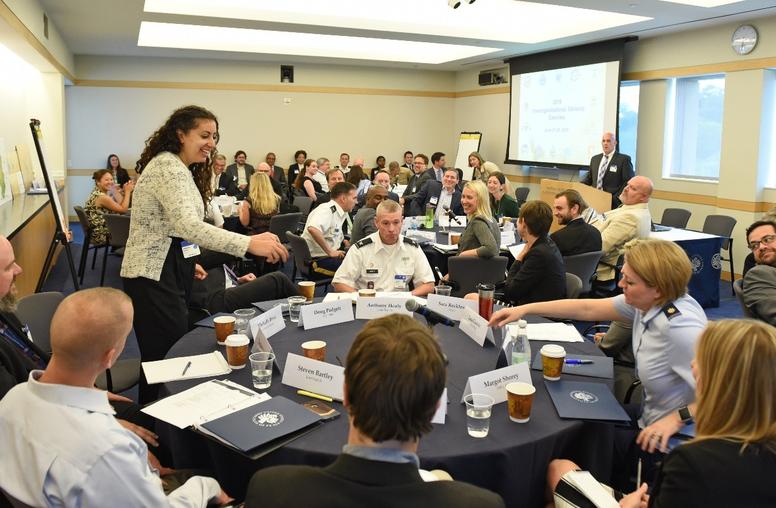
Lake Chad Exercise Demonstrates New Civilian-Military Approach
A group of senior U.S. military and civilian leaders recently agreed to find ways to work together more effectively to counter violent extremism in the volatile Lake Chad Basin of Africa, a region reeling from the casualties and destruction wrought for years by terrorist groups such as Boko Haram. The agreement emerged from a new exercise model...
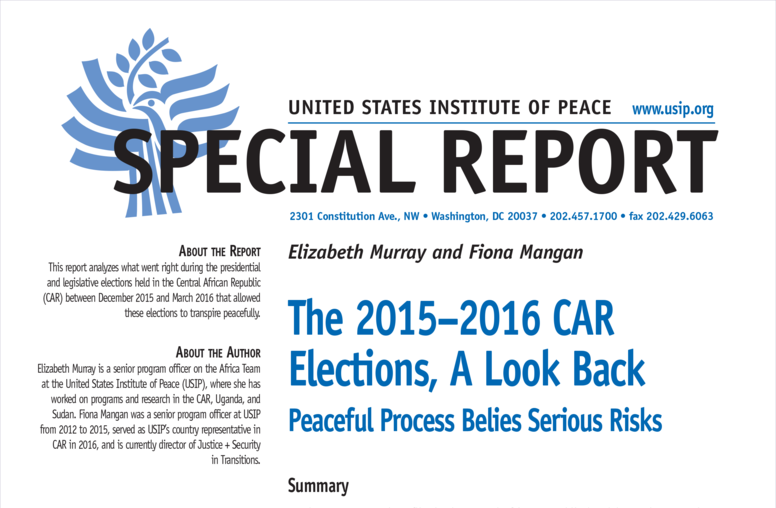
The 2015–2016 Central African Republic Elections, A Look Back
Plagued by successive coups and waves of violent conflict since its independence in 1960, the Central African Republic managed to hold its first peaceful elections in late 2015 and early 2016. Fears of widespread violence proved unfounded. This report focuses on what went right in those elections and how those conditions have not held a year later, allowing violence to return to the country.
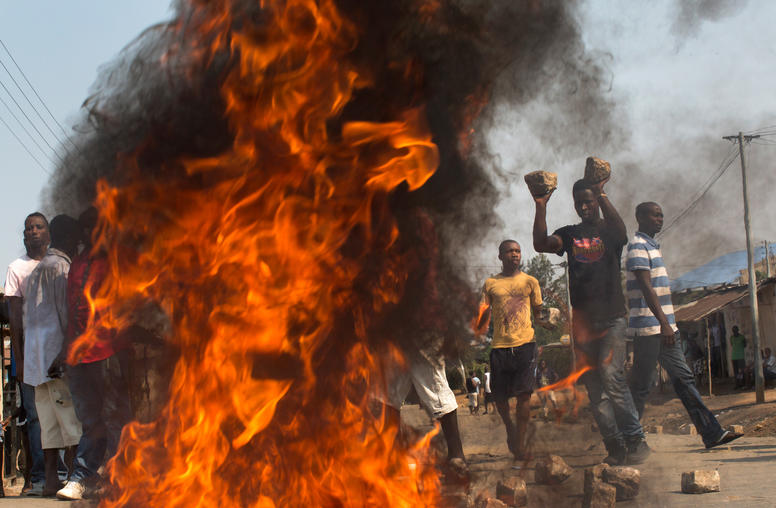
Q&A: What Works in Preventing Election Violence
The elections this year in the Philippines, the Democratic Republic of the Congo, Gabon and even the United States, demonstrate how high-stakes elections frequently trigger anxiety, tension or even violence or the threat of unrest. Properly managed elections allow opposing groups to press their claim to power through a peaceful process. But in fragile democracies, elections frequently feature intimidation or violent protest. U.S. Institute of Peace Senior Program Officer Jonas Claes, editor o...
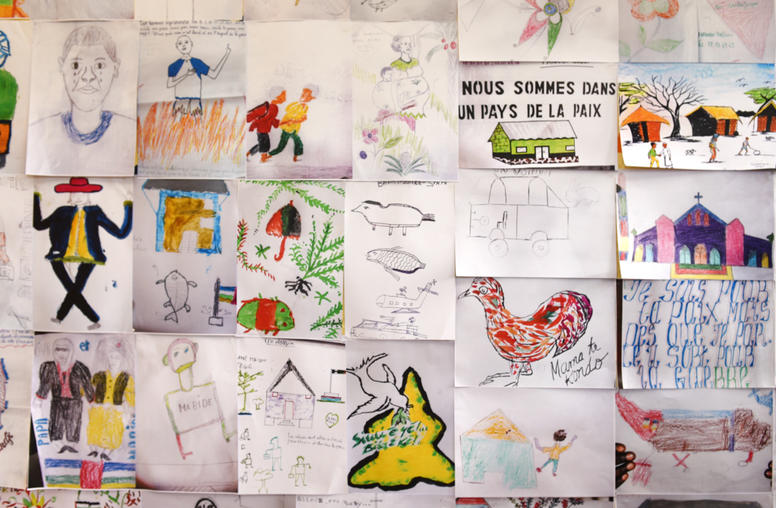
Q&A: Central African Republic Waiting for Peace
Nine months after the Central African Republic (CAR) held free, peaceful and democratic elections for president and parliament, the country continues to struggle for stability and progress. Half of the country remains in need of humanitarian aid, and an increase in violent incidents since September threatens to destabilize any progress made to date. At the end of November, clashes between factions of the ex-Séléka, a formerly united alliance of primarily Muslim armed groups, left 85 dead, 76 injured and 11,000 newly displaced.
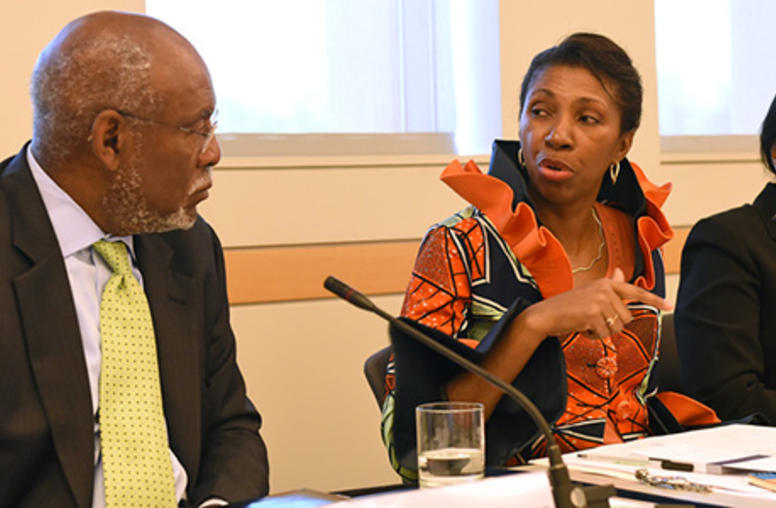
Unlearning Violence: Democratic Republic of the Congo
Martin Luther King Jr. reminds us that “Human progress is neither automatic nor inevitable…” So when we see steps toward justice and a narrative of hope returning to a country worn by violence and conflict, those of us in the peacebuilding field feel reinvigorated. We were fortunate to see an example on July 14, when the Embassy of the Democratic Republic of the Congo co-sponsored with USIP a discussion with that country’s Personal Representative of the President in Charge of the Fight Against Sexual Violence and Child Recruitment, Jeanine Mabunda Lioko Mudiayi.
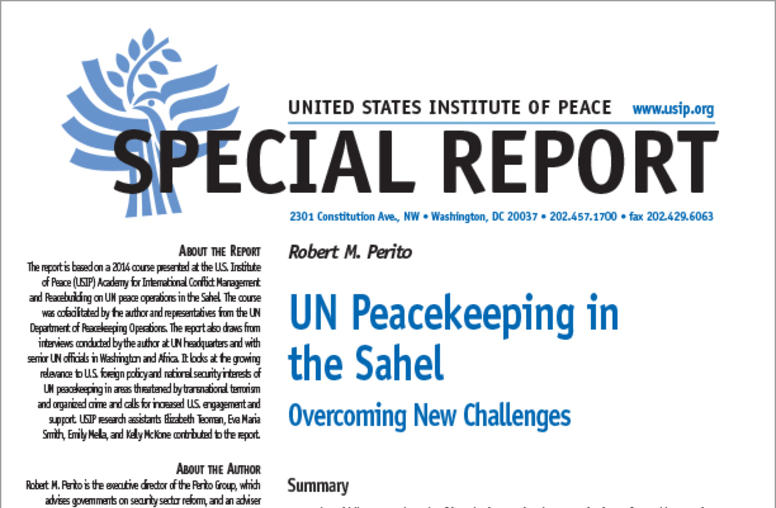
U.N. Peacekeeping in the Sahel: Overcoming New Challenges
New U.N. operations in the Sahel present unprecedented challenges for U.N. peacekeeping. They involve the United Nations directly in the struggle against transnational Islamist terrorism, weapons proliferation, and illicit trafficking by international organized crime. The United Nations must operate in countries with harsh terrain, vast expanses, poor communications, and porous borders. In response, the Security Council adopted more robust mandates based on the peace enforcement provisions of...
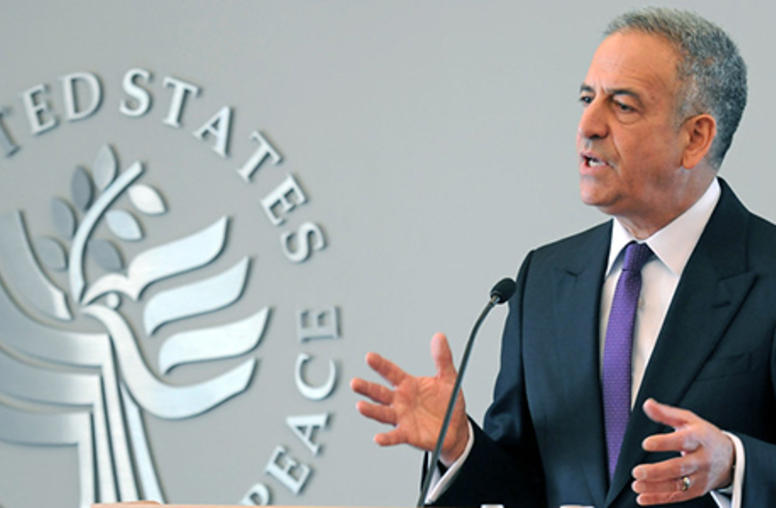
Feingold Presses Three African States on Elections
Russell Feingold, the U.S. Special Envoy working to stabilize Africa’s Great Lakes region, urged Rwanda, Burundi and the Democratic Republic of Congo (DRC) to hold fair, democratic elections as a key step to bringing peace to the region. And he pressed the DRC to launch a promised military offensive in the country’s East against an ethnic Hutu militia that includes fighters who participated in the anti-Tutsi genocide in Rwanda 21 years ago.